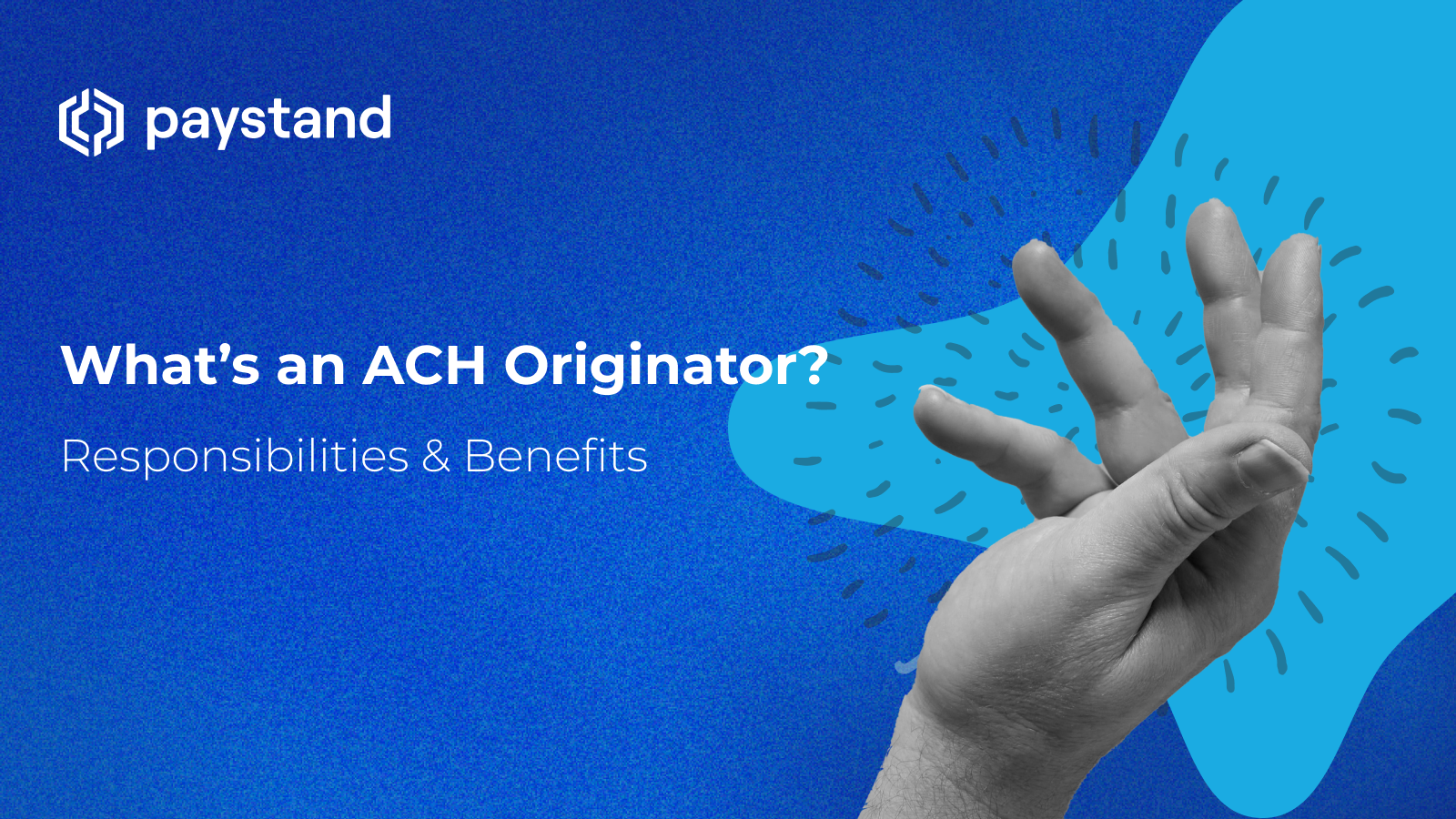What’s an ACH Originator? Responsibilities & Benefits

Table of Contents
Key Takeaways
- An ACH Originator initiates ACH transactions, which can be a business, individual, or other entity
- Originators are responsible for maintaining compliance with NACHA rules, including obtaining and retaining authorizations
- ACH payments offer cost savings, improved cash flow management, and increased efficiency for enterprise originators
- Various forms of ACH authorization include verbal, online, and written, each with specific requirements
In today’s digital economy, efficient payment processing is essential. If your business offers online payments or eChecks, you likely serve as an ACH originator. But what does that mean exactly? In this blog, we'll explore the role of the originator, its responsibilities, and the benefits of ACH payments, helping your business stay competitive.
What Is an Originator?
In the ACH payment process, the individual, business, or party that creates the ACH transaction is known as the originator. Your business acts as an originator if it offers online payments and eChecks as a payment option.
Originators may use a Third Party Processor (TPP) to process B2B payments on their behalf or submit transactions directly to an Originating Depository Financial Institution (ODFI). The ODFI ensures compliance with NACHA standards and verifies the receiver's authorization.
What Is a Receiver?
A receiver is an individual or company that authorizes an ACH transaction and is on the receiving end of the debit instructions. The receiver authorizes the originator to initiate a credit or debit entry to their account, typically held at a Receiving Depository Financial Institution (RDFI).
Responsibilities of an Originator
Originators have several responsibilities within the ACH process, including:
- Obtaining and retaining proper authorizations for at least two years
- Sending entries on the correct date
- Providing notice to the receiver for changes in transaction amounts or dates
- Ceasing entries when notified
- Ensuring OFAC compliance
- Protecting banking information received
Benefits of ACH Payments for Enterprise Originators
ACH payments provide numerous benefits to enterprise originators:
- Cost-effective: Cheaper than wire transfers
- Enhanced cash flow management: Better forecasting
- Efficiency: Streamlined payment processes
- Reduced costs: Lower administrative and operational expenses
- Improved control: Businesses and consumers have more control over payment timing
Forms of Authorization Required for ACH Transactions
Authorization types include:
- Verbal: Must be recorded, with varying state laws on notification
- Online: Agreement to terms and conditions is required
- Written: The most secure, needing a date, amount, and signature, though notarization is not required

As an ACH originator, ensuring compliance and optimizing payment processes are crucial. To learn more about how digital payments can give your business a competitive edge, download our ebook: The Competitive Advantage of Digital Payments in Your Supply Chain.






%20(1)%20(1).jpg?width=100&height=100&name=IMG_3752%20(1)%20(1)%20(1).jpg)